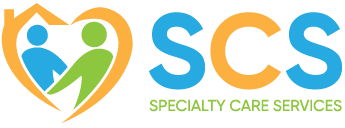Diabetes In-Home Nursing & Care
Maryland, Washington, D.C., and Northern Virginia
24/7 Nurse Availability
Free In-Home Assessments
Over 25 Years of Experience
Hours:
Request Call Back
Hero Request Form
Thank you for contacting us.
We will get back to you as soon as possible.
Please try again later.
Expert Diabetes Home Care Services
Living with diabetes doesn’t have to feel overwhelming! Our in-home nursing team manages blood sugar, medications, and complications while avoiding unnecessary hospital visits so you can be safer, healthier, and more independent.
If you or someone you love is living with higher-severity diabetes—often alongside other health conditions or advanced age—you deserve care that’s consistent, personalized, and delivered right where life happens: at home!
Our Diabetes In-Home Nursing and Care Program is built to simplify daily diabetes management, reduce symptoms, prevent health complications, and keep you thriving in Maryland, Washington, DC, or Northern Virginia.
Who We Serve
We provide in-home nursing and home care for adults with severe or complex diabetes needs. If you or your loved one has experienced any of the following:
- You’ve had frequent high or low blood sugar without being able to control it consistently.
- You’re insulin-dependent (multiple injections or pumps), using GLP-1/Ozempic or a combination of therapies, and have challenges utilizing them consistently.
- You’re dealing with additional health issues, including wounds & injuries, neuropathy, vision changes, kidney issues, or heart disease, and want to prevent setbacks.
- You’ve had a recent hospitalization (DKA, severe hypoglycemia, infection, surgery) and want a safer transition back to your home.
- You take several medications and want professional medication management to avoid errors and interactions.
- You’re an older adult or senior needing steadier support for injections, testing, meals, mobility, and appointments.
- Your daily routine feels overwhelming due to health complications, aging frailty, dementia/alzheimer’s, or developmental disabilities.
- You live alone, your caregiver is burned out, or you simply want more independence at home with a clinical safety net.
Many of our clients choose in-home nursing because it allows them to stay safe, independent, and supported in their health without the stress of constant clinic visits.
Skilled, in-home nursing care and support can help you stay safer, avoid preventable ER trips, and keep day-to-day life manageable.
How We Provide Care
The specific diabetes care services we provide at home:
- Glucose monitoring (fingerstick/CGM) with pattern review and action steps
- Insulin administration (and teaching for self/partner)
- Medication reminders and reconciliation (insulin, GLP-1s, orals, BP/lipids)
- Hypo/hyperglycemia prevention plans (including ketone checks when appropriate)
- Wound care and foot care (dressing changes, infection prevention, off-loading strategies)
- Vital signs and cardiovascular checks (BP, weight/edema, symptom tracking)
- Meal prep and nutrition coaching tailored to culture and preferences
- Mobility and fall-prevention routines; home safety checks
- Appointment coaching and care-team coordination
Our program aims to prevent future complications, including:
- Neuropathy – through glucose stability, foot care, and fall-prevention
- Nephropathy – by medication support, BP/glucose control, lifestyle coaching
- Retinopathy and vision loss – with reminders for eye exams and safe medication/device use
- Foot ulcers and infections – via meticulous foot checks, wound care, and early escalation
- Cardiovascular disease – utilizing regular vitals, risk-factor coaching, and med adherence
- Severe hypo/hyperglycemia – through proactive monitoring, education, and rescue protocols
- Delayed wound healing – providing skin checks, nutrition support, and infection control
- Amputations – seeking early detection and management of foot complications
We do this by being able to provide:
1. Nursing Care
- A registered nurse performs a healthcare assessment to identify needs
- Development of a personalized care plan tailored to the individual
- Medication management, behavioral health support, and health monitoring
- Training for caregivers on medical and behavioral best practices
2. Personal Care
- Assistance with bathing, dressing, grooming, and feeding
- Help with toileting and incontinence care
- Support with mobility and transfers
- Always promoting dignity and comfort
3. Companion Care
- Provides social interaction, supervision, and structured activities
- Supports participation in hobbies, games, and community outings
- Helps reduce isolation and increase engagement
- Provides after-school care and support
4. Respite Care
- Short-term relief for family caregivers
- Care provided in the home so loved ones can rest, travel, or attend to other responsibilities
- Flexible scheduling to meet urgent or planned needs
5. 24/7 Care
- Around-the-clock home support for individuals with high or complex care needs
- Overnight monitoring to ensure safety, comfort, and prompt response to needs
- Continuous personal care, companion care, and nursing oversight as required
Once our team is able to give you a personalized assessment to understand your medical history, conditions, health goals, lifestyle, and any other needs, we can determine which of these types of care would be most effective for you.
Professionals and Providers We Collaborate With Or Recommend
- We can refer our diabetic clients to providers based on their specific needs, or align care with your current providers, including:
- Primary care and endocrinology
- Wound care, podiatry, and vascular specialists
- Ophthalmology/optometry (annual dilated eye exams)
- Nephrology and cardiology
- Diabetes Care & Education Specialists (CDCES) / DSMES programs
- Physical/occupational therapy (balance, mobility, ADLs)
- Behavioral health (diabetes distress, depression, adherence)
What Areas We Serve – and Why
Below are local estimates of adults living with diabetes in our service areas of Montgomery County, MD, Prince George’s County, MD, Howard County, MD, Frederick County, MD, Washington, DC, Fairfax County, VA, and Arlington County, VA. We use this data to plan RN staffing, response times, and neighborhood-level clinical needs.
Montgomery County, MD: Between 110,200 and 158,300 adults live with diabetes, with a higher proportion of men to women. [1] [2] [3] [4]
Prince George’s County, MD: About 91,300 adults currently have diabetes. [5] [6] [7]
Howard County, MD: Between 17,800 and 19,800 adults are diabetic. [8]
Frederick County, MD: Between 16,300 and 20,600 adults are diagnosed with diabetes. [9] [10]
Washington, DC: About 42,900 to 44,100 adults currently have diabetes. [11] [12]
Fairfax County, VA: Around 69,800 adults are estimated to have diabetes. [13] [14] [15] [16]
Arlington County, VA: About 15,200 adults are diabetic. [17] [18] [19] [20]
Using local data, we estimate 363,500-419,000 residents in the DC metro area have diabetes.
Studies show that about 60% of those with diabetes have “high-severity” diabetes, [21] meaning that they have difficulty controlling their blood sugar, are at risk of developing further diabetes complications, and could benefit from in-home nursing and care. That means that between 218,100 and 251,400 individuals in the areas we serve could benefit from Specialty Care Service’s Diabetes In-Home Nursing and Care Program.
Why Choose in-Home Care Vs. Clinic-Only Care?
- Consistency and convenience: We meet you where you live—no travel barriers, fewer missed appointments, and easier med checks.
- Earlier problem-solving: RNs catch issues (wounds, blood sugar trends, and medication side effects) before they become more serious complications.
- Reduced infection risk: Less exposure to others who may have contagious germs and viruses, especially important for those with diabetic foot ulcers or compromised immunity.
- Lifestyle support: Care is more than just blood sugar data – we can help with kitchen, food, activity, and routine habits.
- Safer hospital transitions: Starting home health within 48 hours of discharge is linked to better outcomes.
- Aligned with standards: Our care pathways reflect ADA Standards of Care and DSMES best practices for personalized, team-based management. [22] [23]
How Diabetic Home Care Clients Find Us
If you’re searching for help, you might use phrases like:
- Diabetes home care, home care for diabetes, home nursing for diabetes, in-home diabetes care services, diabetic care at home
- Home health care for diabetes, home nursing services for diabetes, home-based diabetes care, diabetes management at home, home diabetes nursing
- Diabetes home care providers, home health nurses for diabetes, home care agency for diabetes, diabetes care at-home provider, registered nurse home care for diabetes
- Hire diabetes home care, book in-home diabetes care, schedule diabetes care at home, pay for home diabetes care, local diabetes home care near me
- Use any of those when you reach out—our intake team will know exactly what you mean.
How It Works – Step-by-Step
- Call or request a visit: Tell us your goals, diagnoses, recent hospital/ER visits, medications, and devices (glucometer/CGM/pump). We’ll verify insurance options and schedule your first RN visit—as soon as possible after discharge, when applicable.
- RN comprehensive assessment (in-home): We review your history, barriers, and daily routine. We check vitals, feet/skin, medication lists, and device technique. If you use a CGM, we can help interpret trends and time-in-range.
- Personalized care plan: Together, we set goals for A1C, SMBG/CGM patterns, BP, wounds, and activity. Your plan will reflect ADA/DSMES guidance and your preferences (culture, language, schedule). [24] [25]
- Care delivery
- Nursing: glucose checks, insulin administration, med setup, wound/foot care, vitals
- Daily supports: meal prep guidance, hydration, mobility/fall prevention, symptom logs
- Education: hypo/hyperglycemia recognition, sick-day rules, device training, emergency steps
- Regular check-ins & adjustments: Your RN and care team review data, adjust doses after physician orders, and coordinate with PCP/endocrinology, wound care, ophthalmology, nephrology, cardiology, and CDCES educators.
- Measure progress: We track time-in-range, A1C trends, wound healing, ED visits/readmissions, and quality-of-life markers—because your outcomes matter.
Sources
1. Maryland Department of Health.
https://health.maryland.gov/phpa/Pages/diabetes.aspx
Accessed August 2025.
2. Maryland Vital Statistics Administration.
https://health.maryland.gov/vsa/Pages/reports.aspx
Accessed August 2025.
3. Maryland Behavioral Risk Factor Surveillance System (BRFSS).
https://health.maryland.gov/phpa/ccdpc/Pages/brfss_home.aspx
Accessed August 2025.
4. U.S. Census Bureau – QuickFacts: Montgomery County, Maryland.
https://www.census.gov/quickfacts/montgomerycountymaryland
Accessed August 2025.
5. Prince George’s County Health Department – Chronic Disease Data.
https://www.princegeorgescountymd.gov/health
Accessed August 2025.
6. Maryland Department of Health – Diabetes in Prince George’s County.
https://health.maryland.gov/phpa/Pages/diabetes.aspx
Accessed August 2025.
7. CDC Diabetes Data & Statistics – County Data.
https://www.cdc.gov/diabetes/data
Accessed August 2025.
8. Howard County Health Department.
https://www.howardcountymd.gov/health
Accessed August 2025.
9. Frederick County Health Department.
https://health.frederickcountymd.gov
Accessed August 2025.
10. Maryland Department of Health – Frederick County Diabetes Statistics.
https://health.maryland.gov/phpa/Pages/diabetes.aspx
Accessed August 2025.
11. DC Health – Diabetes Data & Reports.
https://dchealth.dc.gov
Accessed August 2025.
12. U.S. Census Bureau – QuickFacts: District of Columbia.
https://www.census.gov/quickfacts/DC
Accessed August 2025.
13. Fairfax County Health Department – Community Health Indicators.
https://www.fairfaxcounty.gov/health
Accessed August 2025.
14. Virginia Department of Health – Diabetes Data.
https://www.vdh.virginia.gov/diabetes
Accessed August 2025.
15. CDC PLACES Data – Fairfax County, VA.
https://www.cdc.gov/places
Accessed August 2025.
16. U.S. Census Bureau – QuickFacts: Fairfax County, Virginia.
https://www.census.gov/quickfacts/fairfaxcountyvirginia
Accessed August 2025.
17. Arlington County Public Health Division.
https://www.arlingtonva.us/Government/Departments/Public-Health
Accessed August 2025.
18. Virginia Department of Health – Arlington County Diabetes Data.
https://www.vdh.virginia.gov
Accessed August 2025.
19. CDC Diabetes Surveillance System – Arlington County, VA.
https://gis.cdc.gov/grasp/diabetes/DiabetesAtlas.html
Accessed August 2025.
20. U.S. Census Bureau – QuickFacts: Arlington County, Virginia.
https://www.census.gov/quickfacts/arlingtoncountyvirginia
Accessed August 2025.
21. National Institutes of Health – Severe Diabetes Burden Study.
https://www.nih.gov/news-events
Accessed August 2025.
22. American Diabetes Association – Standards of Care in Diabetes.
https://diabetesjournals.org/care/issue
Accessed August 2025.
23. CDC – Diabetes Self-Management Education and Support (DSMES).
https://www.cdc.gov/diabetes/dsmes
Accessed August 2025.
24. American Diabetes Association – Medical & Nutrition Therapy Guidelines.
https://diabetesjournals.org/care
Accessed August 2025.
25. National Institute of Diabetes and Digestive and Kidney Diseases (NIDDK).
https://www.niddk.nih.gov/health-information/diabetes
Accessed August 2025.
- Bullet text
- Bullet text
- Bullet text
- Bullet text
- Bullet text
- Bullet text
- Bullet text
- Bullet text
- Bullet text
- Bullet text
Do I need a doctor's referral or order for in-home diabetes nursing services?
No, we have licensed nurses who can prescribe medical treatment. If needed, we can recommend diabetes specialists or collaborate with your current care team.Does private insurance cover in-home diabetes care in Maryland, DC, or Northern Virginia?
Yes – long-term care insurance, Medicaid, and private pay cover our in-home care.How soon can services begin after a hospital discharge or health event?
We can begin our nursing assessment and service within 24-48 hours after discharge.Are caregivers able to assist with arranging diabetic eye exams, podiatry, or lab appointments locally?
Yes – we can schedule these appointments for you, as well as provide transportation and escort you to your appointments.Can services be provided overnight for those with diabetes?
Yes - we offer overnight in-home care for individuals with diabetes, including monitoring blood sugar, medication reminders, nighttime assistance, and support for any urgent needs.

CP #1 Headline
CP #1 Body
CP #1 CTA Lead-in
Not valid with any other offers or promotions. Restrictions apply.
Must mention this coupon at the time of scheduling.
Reviews



